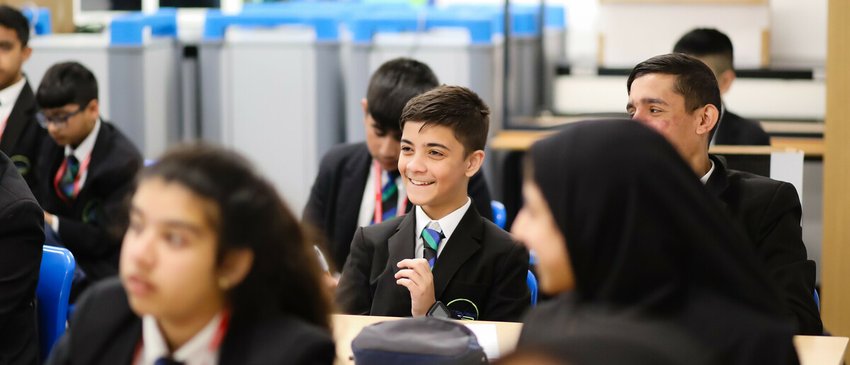Media literacy

What is media literacy?
Media literacy refers to the skills needed to be able to critically access, analyse, evaluate and create media in various forms. Media literacy is an essential life skill, especially in an increasingly digital age. Evaluating the reliability of online media and news stories, and most recently, AI outputs, requires evermore complex skills, including critical, digital and information literacy.
From the invention of writing to the emergence of generative AI, what it means to be literate has always been influenced by the technology we use to communicate. We are shaped by these advancements and with each development, are required to consider not just the literacy skills needed for the current time, but for the future. This is why, alongside all our work in early years settings, schools and communities across the UK, our Future of Literacy project seeks to explore and actively evaluate the literacy skills needed to thrive in a shifting landscape.
Why is media literacy important?
As media consumption evolves and misinformation presents a growing threat, it is more important than ever to support media literacy education and initiatives that develop critical thinking, digital competency, and informed civic participation.
Tackling mis- and disinformation
Media literacy is important for many reasons. Developments in digital technology have democratised access to media creation and publishing, radically altering who can create and share news and information. While this can have many benefits, it also means we must all develop new skills to support an informed critical analysis of what we see or read, so we can evaluate its veracity, source and any potential bias. Without these skills, children and adults alike, are more susceptible to misinformation and disinformation, which can distort our understanding of vital issues such as health, politics and finance.
Protecting equality
Disadvantaged communities, already facing barriers to access resources and information, are further marginalised if they don't have the media literacy skills they need to thrive online, widening the digital divide and limiting social mobility.
Preparing children for their future
Employability is increasingly tied to digital and critical thinking skills and those without these skills may have more limited opportunities in the modern job market.
In order to support these aims, we participate in relevant working groups and you can learn more about our programmatic and research work in this area here:
Our media and critical literacy research
-
This report presents findings from a survey exploring young people’s literacy and critical literacy attitudes and behaviours when navigating online environments.Learn more about Insights into young people’s literacy, critical digital literacy, online communication and wellbeing.
-
An evaluation of The Guardian Foundation's NewsWise programme supporting media literacy in children and families in BirminghamLearn more about Evaluation of NewsWise in Birmingham.
-
The final report of the Commission on Fake News and the Teaching of Critical Literacy in Schools.Learn more about Fake news and critical literacy: final report.
-
Evaluation of the Empower programme supporting media literacy in girls and young women in Alternative ProvisionLearn more about Evaluation of Empower.
How to improve media literacy skills
We must ensure that children, young people and whole communities are equipped with the tools and media literacy skills they need to thrive in our complex digital world. Discover our media and critical literacy programmes, CPD training and classroom resources to support teachers.
-
A scheme of work to enable teachers to support KS3 students with their understanding of misinformation and disinformation and to hold safe discussions around the events of Summer 2024.Learn more about Media Literacy: a resource to Empower young minds.
-
Empower yourself to lead the charge in media literacy education within your school community with our free, comprehensive CPD programme.Learn more about Empower: media literacy leader training.
-
Empower is a 10-session programme that aims to give girls in alternative provision the tools to make more informed choices on the internet.Learn more about Empower: a critical media literacy programme.
-
Resources, posters and tips to teach children about fake news, and give them the critical literacy skills they need to navigate our digital world.Learn more about Fake news and critical literacy resources.
-
To help teachers find the most useful resources about fake news and critical literacy, the News Literacy Network has compiled the best resources we could find from a wide range of...Learn more about News Literacy Network: find the right fake news and critical literacy teaching resources.
-
A classroom discussion activity for pupils aged 11-14, providing the opportunity for students to reflect upon their online communication skills, behaviours and attitudes, and the...Learn more about Classroom discussion activity: online communication and wellbeing.











